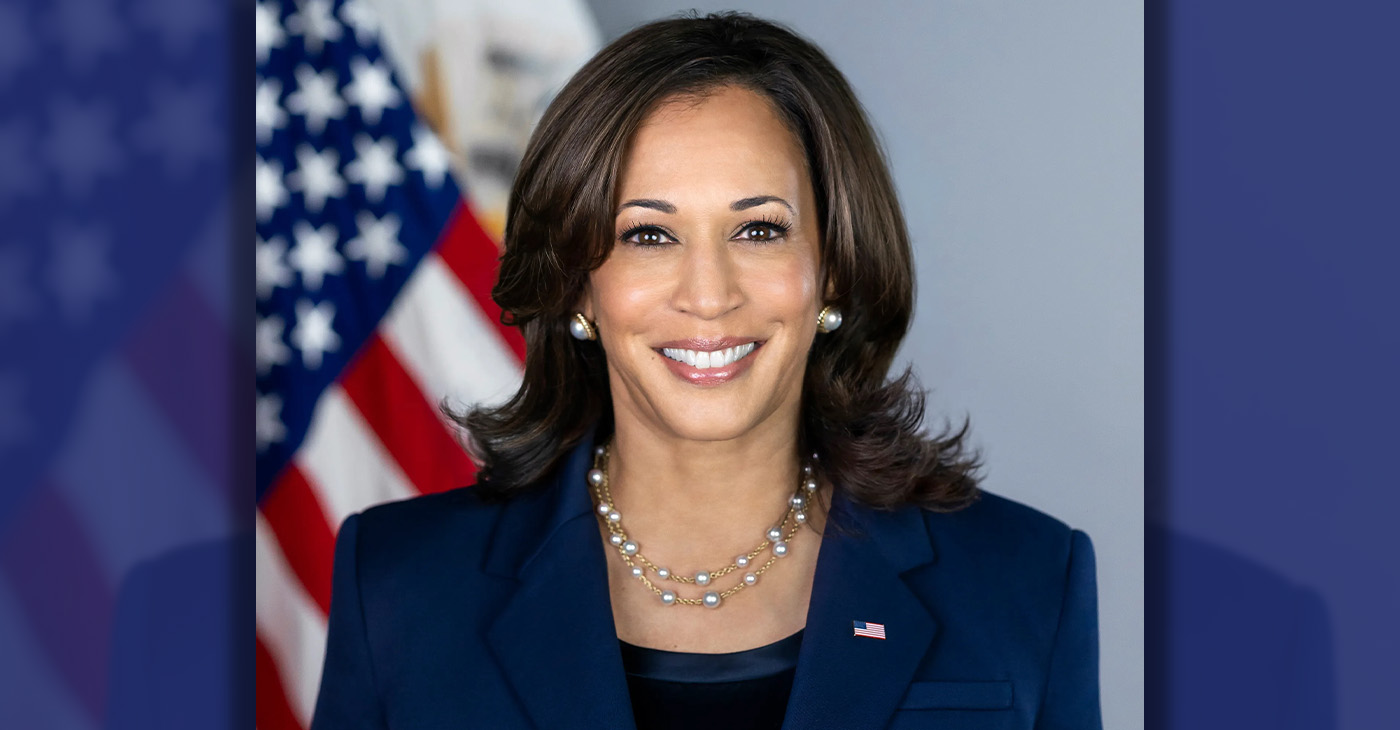Business
Auto loan delinquencies climbed to $9 billion in 2018
NNPA NEWSWIRE — … in April of last year, Congress used the Congressional Review Act to nullify the Consumer Financial Protection Bureau’s (CFPB) auto finance guidance that held auto lenders responsible for discriminatory lending practices prohibited under the Equal Credit Protection Act. This distorted use of the Congressional Review Act, sometimes known as another CRA, was never intended to overturn long-standing agency practices.
By Charlene Crowell, NNPA Newswire Contributor
In recent months, many economists and lawmakers have frequently touted how the nation’s economy is performing really well. Often citing historically low unemployment rates, I’ve always felt that such pronouncements failed to consider the untold millions of Americans who are eking out a living on low or no raises, or others who work multiple jobs trying to piece together a living for their families.
But new data from the Federal Reserve Bank of New York, offers hard evidence that a key sector of the economy is showing signs of distress: auto loans. At the end of 2018, 7 million consumers were three months behind on their car payments, according to the Fed’s Liberty Street Economics.
Addressing its finding of multi-million auto loan delinquencies, the Fed wrote, “That is more than a million more troubled borrowers than there had been at the end of 2010 when the overall delinquency rates were at their worst, since auto loans are now more prevalent.”
I suspect that many consumers want to keep a car available just as much as a roof over their heads. Reliable wheels also offer a certain amount of freedom of mobility that eliminates the need to know a train or bus route or the fare.
So why are so many consumers delinquent on their car loans?
Answers can be found by examining the terms of the loans. Just as the foreclosure crisis took people’s homes, the wrong car loan takes your mobility. Consumers with lower credit scores – less than 620 on a scale that reaches 850 – become easy targets for sub-prime auto finance that comes with interest rates from the mid-teens to as high as 20 percent. Auto finance companies are often used by lower credit score consumers looking to buy a car.
By comparison, consumers with credit scores of 661 to 780 or higher typically have car loan interest rates of 6 percent or less. These consumers frequently finance their autos from banks, credit unions, or the financing arms of major auto manufacturers. Of the nation’s $1.27 trillion in car loan debt, 30 percent of loans were made to consumers with credit scores over 760.
As Liberty Street reports, 6.5 percent of auto finance loans are 90 days or more past due, compared with only 0.7 percent of loans originated by credit unions. So unfortunately, once again, it is the struggling, working poor who are bearing the brunt of car loan delinquencies, often forged by predatory high-interest rates and other practices.
Another new and independent research report entitled, Driving Into Debt, found that the money now owed on cars is up 75 percent since the end of 2009, an all-time record.
Jointly authored by U.S. Public Interest Research Group (US PIRG) and the Frontier Group, this report states that subprime auto lenders inflict financial abuses that are both predatory and discriminatory from making loans to people without the ability to repay, marking up rates and prices on both Black and Latino customers, and financing expensive add-on products like extended warranties and insurance into the car loans.
“Americans shouldn’t have to fight their way through a thicket of tricks and traps at the auto dealer just to get the transportation they need to get to work or school,” said Ed Mierzwinski, U.S. PIRG’s senior director for federal consumer programs and a report co-author.
Nor does it help that in April of last year, Congress used the Congressional Review Act to nullify the Consumer Financial Protection Bureau’s (CFPB) auto finance guidance that held auto lenders responsible for discriminatory lending practices prohibited under the Equal Credit Protection Act. This distorted use of the Congressional Review Act, sometimes known as another CRA, was never intended to overturn long-standing agency practices.
But in 2018, the law was used to overturn 14 agency rules. At the time, Senate Majority Leader Mitch McConnell described the auto lending CRA as part of a broader deregulation effort, stating: “Our whole economy is getting a tune-up. And now it’s time for the front end of the auto industry to come along for the ride.”
That kind of perspective suggests that the Majority Leader may have an unhealthy regard for fair lending laws, particularly those aimed at eliminating racial and ethnic discrimination. Further, time and actions will tell how much Kathy Kraninger, the new CFPB Director, is attuned to the predatory and discriminatory lending that continues despite federal laws.
“We need a strong Consumer Financial Protection Bureau and help from state Attorneys General and local officials to enforce consumer and fair lending laws against unfair car loan tactics,” added Mierzwinski. “Otherwise, consumers and the overall economy will suffer.”
“Predatory and discriminatory auto lending practices notoriously prey upon the financially distressed, with loans that disregard the consumer’s ability to afford them,” noted Rebecca Borne, a Senior Policy Counsel with the Center for Responsible Lending. “Common-sense regulation and enforcement are needed to ensure responsible underwriting and elimination of other predatory practices that are consistently shown to result in borrowers of color paying more than white borrowers, even controlling for creditworthiness.”
Charlene Crowell is the Center for Responsible Lending’s Communications Deputy Director. She can be reached at Charlene.crowell@responsiblelending.org.
Activism
Oakland Post: Week of April 17 – 23, 2024
The printed Weekly Edition of the Oakland Post: Week of April 17 – 23, 2024

To enlarge your view of this issue, use the slider, magnifying glass icon or full page icon in the lower right corner of the browser window. ![]()
Business
V.P. Kamala Harris: Americans With Criminal Records Will Soon Be Eligible for SBA Loans
Speaking in Las Vegas on Jan. 27, Vice President Kamala Harris announced a forthcoming federal rule that will extend access to Small Business Administration (SBA) loans to Americans who have been convicted of felonies but have served their time. Small business owners typically apply for the SBA loans to start or sustain their businesses.

By California Black Media
Speaking in Las Vegas on Jan. 27, Vice President Kamala Harris announced a forthcoming federal rule that will extend access to Small Business Administration (SBA) loans to Americans who have been convicted of felonies but have served their time.
Small business owners typically apply for the SBA loans to start or sustain their businesses.
Harris thanked U.S. Rep. Steven Horsford (D-NV-04), the chair of the Congressional Black Caucus, for the work he has done in Washington to support small businesses and to invest in people.
“He and I spent some time this afternoon with business leaders and small business leaders here in Nevada. The work you have been doing to invest in community and to invest in the ambition and natural capacity of communities has been exceptional,” Harris said, speaking to a crowd of a few hundred people at the Brotherhood of Electrical Workers Hall in East Las Vegas.
On her daylong trip, Harris was joined by Horford, SBA Administrator Isabella Guzman, Interim Under Secretary of Commerce for Minority Business Development Agency (MBDA) Eric Morrissette, and Sen. Catherine Cortez Masto (D-Nev).
“Formerly incarcerated individuals face significant barriers to economic opportunity once they leave prison and return to the community, with an unemployment rate among the population of more than 27%,” the White House press release continued. “Today’s announcement builds on the Vice President’s work to increase access to capital. Research finds that entrepreneurship can reduce recidivism for unemployed formerly incarcerated individuals by as much as 30%.”
Business
G.O.P. Lawmakers: Repeal AB 5 and Resist Nationalization of “Disastrous” Contractor Law
Republican lawmakers gathered outside of the Employee Development Department in Sacramento on Jan. 23 to call for the repeal of AB5, the five-year old California law that reclassified gig workers and other independent contractors as W-2 employees under the state’s labor code.

By California Black Media
Republican lawmakers gathered outside of the Employee Development Department in Sacramento on Jan. 23 to call for the repeal of AB5, the five-year old California law that reclassified gig workers and other independent contractors as W-2 employees under the state’s labor code.
Organizers said they also held the rally to push back against current efforts in Washington to pass a similar federal law.
“We are here to talk about this very important issue – a battle we have fought for many years – to stop this disastrous AB 5 policy,” said Assembly Republican Leader James Gallagher (R-Yuba City).
Now, that threat has gone national as we have seen this new rule being pushed out of the Biden administration,” Gallagher continued.
On Jan. 10, the U.S. Department of Labor issued a new rule providing guidance on “on how to analyze who is an employee or independent contractor under the Fair Labor Standards Act (FLSA).”
“This final rule rescinds the Independent Contractor Status Under the Fair Labor Standards Act rule (2021 IC Rule), that was published on January 7, 2021, and replaces it with an analysis for determining employee or independent contractor status that is more consistent with the FLSA as interpreted by longstanding judicial precedent,” a Department of Labor statement reads.
U.S. Congressmember Kevin Kiley (R-CA-3), who is a former California Assemblymember, spoke at the rally.
“We are here today to warn against the nationalization of one of the worst laws that has ever been passed in California, which has devastated the livelihoods of folks in over 600 professions,” said Kiley, adding that the law has led to a 10.5% decline in self-employment in California.
Kiley blamed U.S Acting Secretary of Labor, July Su, who was the former secretary of the California Labor and Workforce Development Agency, for leading the effort to redefine “contract workers” at the federal level.
Kiley said two separate lawsuits have been filed against Su’s Rule – its constitutionality and the way it was enacted, respectively. He said he is also working on legislation in Congress that puts restrictions on the creation and implementation of executive branch decisions like Su’s.
Assemblymember Kate Sanchez (R-Rancho Santa Margarita) announced that she plans to introduce legislation to repeal AB 5 during the current legislative session.
“So many working moms like myself, who are also raising kids, managing households, were devastated by the effects of AB 5 because they lost access to hundreds of flexible professions,” Sanchez continued. “I’ve been told by many of these women that they have lost their livelihoods as bookkeepers, artists, family caregivers, designers, and hairstylists because of this destructive law.”
-

 Activism4 weeks ago
Activism4 weeks agoOakland Post: Week of March 20 – 26, 2024
-

 #NNPA BlackPress3 weeks ago
#NNPA BlackPress3 weeks agoCOMMENTARY: D.C. Crime Bill Fails to Address Root Causes of Violence and Incarceration
-

 #NNPA BlackPress3 weeks ago
#NNPA BlackPress3 weeks agoMayor, City Council President React to May 31 Closing of Birmingham-Southern College
-

 #NNPA BlackPress4 weeks ago
#NNPA BlackPress4 weeks agoFrom Raids to Revelations: The Dark Turn in Sean ‘Diddy’ Combs’ Saga
-

 #NNPA BlackPress4 weeks ago
#NNPA BlackPress4 weeks agoCOMMENTARY: Lady Day and The Lights!
-

 Activism3 weeks ago
Activism3 weeks agoOakland Post: Week of March 27 – April 2, 2024
-

 #NNPA BlackPress4 weeks ago
#NNPA BlackPress4 weeks agoBaltimore Key Bridge Catastrophe: A City’s Heartbreak and a Nation’s Alarm
-

 #NNPA BlackPress4 weeks ago
#NNPA BlackPress4 weeks agoBaltimore’s Key Bridge Struck by Ship, Collapses into Water





















































1 Comment